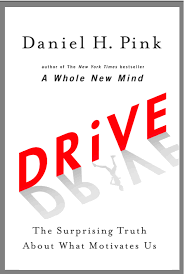 By Tom
By Tom
I went for a bike ride recently in Eastern Washington. It was a pleasant, sunny day and I was riding alone on a quiet, country road into a scenic canyon. After an hour or so of gently rolling hills, I began to notice that the canyon walls were steadily closing in around me, and the lazy river that I'd been following was starting to take a more active attitude. Things were getting steep. Now, anyone who's ever ridden into a canyon can tell you that there's only two ways out: the way you came, or up the hill at the end of the canyon. And what a hill it was; steep switchbacks as far as the eye could see. I could have turned back; there was no one around to impress, and there were plenty of flatter roads to choose from.
I decided to go for it. It was difficult, grueling and painful. But I eventually made it, and when I got to the top I was exhilarated. I had successfully done something difficult. I also found that the rest of my ride was defined by my decision to take the climb. I got to spend the next two hours going generally downhill, and the slopes I did encounter paled in comparison to the monster I had climbed earlier. It was well worth the effort.
As I was coasting along, I began to reflect that this experience was not unlike how it is in education today. For the first 25 years of my career, things have been going relatively smoothly. I've felt respected and supported by the press, the policy-makers and other stake-holders. But things right now are as discouraging as I've ever seen. We've got climbing class sizes, RiFs, lower funding, program eliminations, heightened accountability, ridiculous merit-pay schemes, wholesale faculty firings; not to mention climbing healthcare premiums and retirement account statements that we don't even want to look at. And to top it all off: copy counts! We're getting in trouble for producing the very materials we need to do our jobs. An outrage!
I feel like we're at that hill at the end of the canyon. Some of us are tempted to turn around and ride back out. Most of us, however, are plodding on, even accelerating, despite the slope. Why? because we know we're supposed to. We know we're doing something important. Something that needs to be done, no matter how difficult it seems.
And we'll do it. We'll get over this hill. Not right away, but eventually. The funding will return, the pressure will ease and class sizes will come back down. The good teachers that got Riffed will come back and we'll get to use the copier when we need to.
And just like my bike ride, we'll find that the next decade or so will be defined by the way we deal with things right now. If we quit on each other, quit on our students and quit on ourselves, we'll have lost; we'll have taken the easy road out. But if we stick together, focus on our students and stay true to what got us into this wonderful profession in the first place, we'll be fine. We'll look back on this period knowing we took the tough way out. We'll know we climbed the hill at the end of the canyon.
I'll end with a line from Winston Churchill, who was talking to a far more discouraged group during a far bleaker period of time:
"When you're going through hell," he said, "Keep going."



 By Tom
By Tom By Tom
By Tom